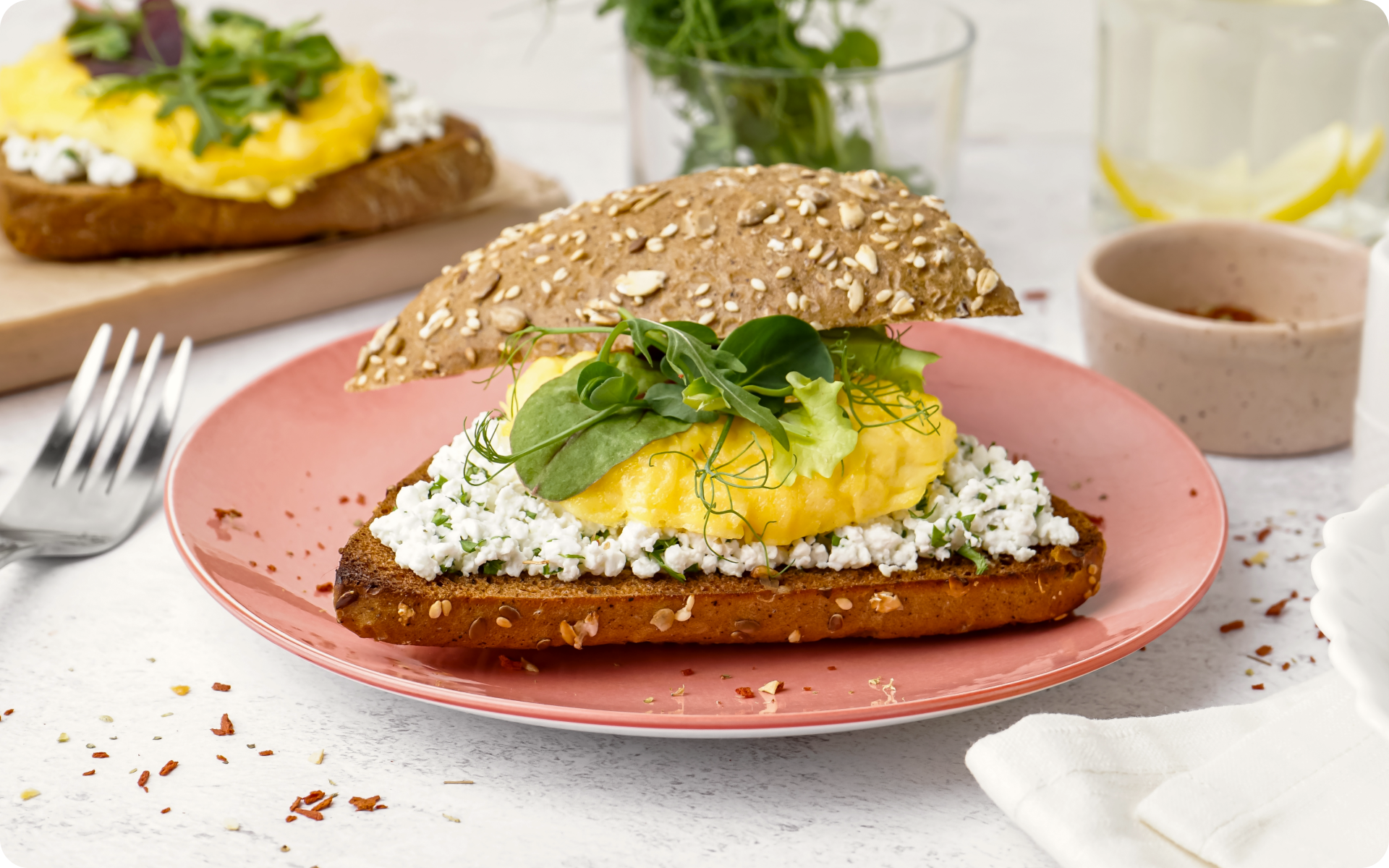Inflammation is your body’s natural response to injuries, infections, and illnesses. It occurs when the immune system sends an increased amount of white blood cells (cells that fight off an injury or infection) to the affected area.
However, some diseases can cause your immune system to work excessively and attack healthy tissue, including asthma, arthritis, and psoriasis. So, in addition to prescription medication, lifestyle changes are required. This is where the anti-inflammatory diet comes in.
What Is an Anti-Inflammatory Diet?
An anti-inflammatory diet is a weight loss and disease prevention strategy that is focused on reducing inflammation in the body by eliminating certain foods, particularly those that are believed to increase inflammation (21).
The idea behind an anti-inflammatory approach to eating is simple: long-term inflammation is associated with chronic diseases such as heart disease, cancer, and diabetes (4). While genetics play an important role in many of these conditions, lifestyle choices can also have a significant impact. Eating foods that have been shown to reduce inflammation can actually help lower inflammation over time (18).
Foods that are particularly high in saturated fat and added sugars have a tendency to trigger a pro-inflammatory response that leads to increased risk for many chronic illnesses (19).
There is some overlap between those who follow a standard American diet (SAD) and those with inflammatory health problems such as Crohn’s disease or heart disease. Therefore, limiting your intake of red meats and saturated fats is an essential part of the anti-inflammatory diet.
While the ultimate goal of an anti-inflammatory diet is reducing long-term inflammation, it can also help with temporary discomfort that is often associated with these conditions. Many people who have a regular inflammatory condition such as arthritis have reported that following an anti-inflammatory diet helps improve their symptoms and makes it less painful (or even possible) to do daily tasks.
Yanking yourself back in shape has never been so easy with our game-changing fitness app! Start transforming your life with BetterMe!
What Foods Are Anti-Inflammatory?
A good rule of thumb to follow when determining what exactly should feature on your 21-day anti-inflammatory diet food list is to choose natural and whole foods over those that are highly processed. Others select organic fruits and vegetables over conventionally grown, but this may not always be feasible.
You should focus on choosing the following ingredients in particular:
Vegetables
Dark leafy greens such as kale, spinach, collards, and Swiss chard, often referred to as super vegetables, are high in antioxidants that reduce inflammation in your body (9).
Vegetables also contain beta-carotene (a form of vitamin A), which helps nourish and protect cells from free radicals that are often responsible for inflammation (1).
Fatty Fish
Omega 3 fatty acids, which are commonly found in fish such as salmon, are anti-inflammatory and are believed to combat heart disease (14).
Foods Rich in Vitamin C
Studies have shown that taking vitamin C may help lower elevated levels of C-reactive protein (CRP), a marker for inflammatory diseases (20). Foods that are high in vitamin C include citrus fruits, bell peppers, broccoli, and dark leafy greens.
Navel oranges contain high amounts of vitamin C and also the carotenoid lutein. When you add them to your daily diet you’ll get a healthy dose of nutrients and an anti-inflammatory response from consuming such foods.
Whole Grains
Whole grains are rich in fiber and antioxidants, both of which may help reduce inflammation. Whole grains include foods such as brown rice, whole-wheat bread products, oatmeal, and quinoa.
Nut Butter
Some research has suggested that nuts may actually help with weight loss, prevent other diseases, and reduce inflammation (10).
Fruits
Fruits have a high concentration of antioxidants, which may help reduce inflammation (9). You should aim to include at least one serving of fruit per day in your diet.
Berries
While all fruit is good, make sure you eat plenty of fruits that are rich in anthocyanins, which can be found in dark blue, purple, and red produce such as cherries, berries, plums, and pomegranates. Blueberries, strawberries, and other berries are also rich in antioxidants that may help reduce inflammation (3).
Seeds and Healthy Fats
Seeds such as chia and flax are good sources of omega-3 fatty acids, which may be helpful for reducing inflammation (14).
Healthy Fats
Healthy fats are found in olive oil and a variety of nuts such as almonds, cashews, pecans, and walnuts (which can be added to oatmeal), in addition to avocados.
Eating healthy fats may be particularly important for fighting off inflammation as low-fat diets have been suggested to increase the risk for chronic disease due to inflammation triggered by excess added sugar (11).
Read more: The Banana Diet: Pros, Cons, and Everything Else You Need to Know
What Are the Top 20 Anti-Inflammatory Foods?
The top 20 anti-inflammatory foods are (2):
- Berries – rich in antioxidants and polyphenols, which have anti-inflammatory properties
- Fatty fish – high in omega-3 fatty acids, which may help reduce inflammation
- Leafy greens – contain flavonoids and carotenoids that have anti-inflammatory properties
- Turmeric – contains curcumin, which has powerful anti-inflammatory properties
- Avocados – high in monounsaturated fats, which may help reduce inflammation
- Broccoli – contains sulforaphane, a compound that has anti-inflammatory properties
- Olive oil – rich in oleocanthal, which has been shown to share some characteristics with ibuprofen, an anti-inflammatory drug
- Tomatoes – contain lycopene, an antioxidant with anti-inflammatory properties
- Nuts – high in healthy fats, antioxidants, and phytochemicals that may help reduce inflammation
- Green tea – contains catechins, which have been shown to have anti-inflammatory properties
- Beets – contain betalains, compounds that have powerful anti-inflammatory properties
- Garlic – contains allicin, a compound with anti-inflammatory and antioxidant properties
- Ginger – contains gingerol, a substance that has been shown to have anti-inflammatory properties
- Grapes – contain resveratrol, an antioxidant with potent anti-inflammatory properties
- Dark chocolate – high in cocoa, which contains flavonoids that have anti-inflammatory properties
- Mushrooms – contain beta-glucans, compounds that support gut health and have anti-inflammatory properties
- Onions – contain quercetin, a flavonoid with anti-inflammatory properties
- Oranges – high in vitamin C, which has antioxidant and anti-inflammatory properties
- Spinach – rich in antioxidants and phytochemicals that may help reduce inflammation
- Sweet potatoes – contain beta-carotene, a compound with anti-inflammatory properties
What Are Inflammatory Foods?
The following foods have been linked to inflammation and should be limited or avoided when possible:
Processed Meats
Processed meats such as sausage, bacon, or deli meats have been shown to increase the risk of heart disease and diabetes, as well as some cancers (6).
Unhealthy Fats
Saturated fats can contribute to inflammation in the body (16). This also includes foods that are rich in trans fats (partially hydrogenated oil). With virtually no redeeming nutritional value, these types of foods should be avoided as much as possible. Luckily, trans fats have been banned in many countries. Saturated fats can be limited by choosing lean animal and more plant-based protein sources.
Refined Carbs
Studies have suggested that refined carbs such as white bread may increase inflammation and a diet that is high in them is linked to heart disease (8).
Sugar-Sweetened Beverages
Several studies have shown that an overconsumption of sugar can lead to increased inflammation, especially in the joints. Some research has suggested that this is due to an increase in inflammatory markers called interleukin-6 (IL-6) (7).
IL-6 is produced by the liver after fructose consumption and contributes to joint swelling, pain, and stiffness, symptoms that are associated with rheumatoid arthritis.
Red Meat
Red meat is rich in saturated fat and can increase cholesterol levels. Research has suggested that a diet that is high in red meat increases inflammation throughout the body, putting you at increased risk for heart disease, type 2 diabetes, and various types of cancer(12).
If you wish to cinch your waist, tone up your bat wings, blast away the muffin top – our fitness app was created to cater to all your needs! BetterMe won’t give excess weight a chance!
How Can I Get Started on the 21-Day Anti-Inflammatory Diet?
Researchers suggest that an anti-inflammatory diet is one key to fighting chronic disease and improving overall health (13).
The goal of this diet is to decrease inflammation, while also increasing your intake of healthy fats, fiber, and protein and reducing the amount of refined carbohydrates such as sugar.
Lifestyle Changes
You should start by limiting ultra processed foods in your diet. Replace them with whole grains and produce, in addition to lean proteins such as fish, poultry, and plant-based proteins instead of red meat. You should aim for at least four servings of fruits or vegetables every day.
Fiber helps improve digestion, lowers cholesterol levels, and prevents heart disease, which are all factors that help curb inflammation in the body (5). To fit more fiber into your diet, you should consider eating more whole grains, fruits, and vegetables as well as drinking plenty of water to help aid digestion.
Workout Plan
Exercise has been shown to combat chronic inflammation and should be an important part of your anti-inflammatory diet plan.
Try incorporating more natural forms of exercise into your routine, such as yoga or stretching, rather than aggressive workouts such as CrossFit.
Research has shown that a combination of healthy foods along with weight loss through diet and increased physical activity can reduce markers that are associated with chronic inflammation (15). This means you can lower your risk for heart disease, diabetes, and arthritis by eating better and moving more!
Read more: 6 Keto Sushi Recipes to Eat on a Low-Carb Diet
The 21-Day Anti-Inflammatory Diet Meal Plan
Here is a sample week of healthy meals that can be part of your 21-day menu anti-inflammatory diet:
Day One
- Breakfast: Oatmeal topped with cherries, and coconut flakes
- Lunch: Pumpkin soup with whole-wheat bread and a mixed green salad
- Dinner: Potato curry with eggs
- Snack: Roasted cashews
Day Two
- Breakfast: Flaxseed porridge made with oat flour
- Lunch: White bean and tuna salad
- Dinner: Grilled chicken and broccoli
- Snack: Carrot and celery stick with nut dip
Day Three
- Breakfast: Scrambled egg and avocado on whole-wheat toast
- Lunch: Kale and avocado salad
- Dinner: Sheet-pan Mediterranean chicken, Brussels sprouts, and gnocchi
- Snack: Low-fat Greek yogurt topped with raspberries
Day Four
- Breakfast: Matcha berry smoothie bowl
- Lunch: Chicken quinoa salad
- Dinner: Grilled salmon with steamed vegetables and roasted potatoes
- Snack: Roasted beets and carrots
Day Five
- Breakfast: Banana mango turmeric smoothie
- Lunch: Hummus and Greek salad
- Dinner: Baked eggs in tomato sauce with kale and a slice of whole-wheat baguette
- Snack: Low-fat Greek yogurt topped with blueberries and chia seeds
Day Six
- Breakfast: Gingerbread oatmeal
- Lunch: Slow cooker turkey chili
- Dinner: Lemon chicken and potatoes with kale
- Snack: Dried walnuts
Day Seven
- Breakfast: Raspberry smoothie
- Lunch: Baked tilapia with roast potatoes and a side of steamed vegetables
- Dinner: Vegan chickpea curry
- Snack: 1 large pear
FAQs
What is the easiest anti-inflammatory diet?
The easiest anti-inflammatory diet is one that is focused on eating whole, minimally processed foods such as fruits, vegetables, healthy fats, and lean proteins. This includes incorporating the top 20 anti-inflammatory foods that are listed above into your daily meals and snacks.
Avoiding ultra processed foods, added sugars, and unhealthy fats can also help reduce inflammation in the body. An anti-inflammatory diet plan for losing weight may also include reducing your caloric intake and incorporating regular physical activity.
What is the number one food to fight inflammation?
There is no single “number one” food for fighting inflammation as a balanced and varied diet that consists of whole, nutritious foods is the key to reducing inflammation in the body. However, some of the top anti-inflammatory foods, such as fatty fish, leafy greens, and berries, may be particularly effective for fighting inflammation.
A simple anti-inflammatory meal plan can include a serving of fatty fish, a large leafy green salad, and a serving of berries for dessert.
Are eggs inflammatory?
Eggs are not inherently inflammatory, but the way they are prepared and cooked can contribute to inflammation. For example, fried eggs or those that are cooked in unhealthy oils may promote inflammation. However, boiled or poached eggs are a healthier option and can be part of an anti-inflammatory diet due to their high protein content.
Check out our detailed guide on Anti-Inflammatory Diet Types that goes into detail about specific diets that are known to reduce inflammation.
Is coffee inflammatory?
Coffee is not considered inflammatory, but the caffeine it contains can trigger inflammation in some individuals. However, research has shown that moderate coffee consumption (1-2 cups per day) may have anti-inflammatory effects due to its high antioxidant content.
As with any food or beverage, it is important to listen to your body and monitor the ways in which it responds to coffee consumption.
Check out this Anti-Inflammatory Diet Plan Guide that has a sample meal plan and recipes to help you incorporate anti-inflammatory foods into your diet (17).
The Bottom Line
The anti-inflammatory diet is a simple way of combating chronic inflammation and some of the most common health conditions that can flare it up. By lowering your intake of pro-inflammatory foods, you’ll be able to fight off these diseases by improving your body’s resistance to an inflammatory response.
While cutting out certain foods may initially appear difficult, it will become second nature with practice. To make things easier, try using “anti-inflammatory” as a label when creating healthy meals or snacks. The more you incorporate anti-inflammatory foods into your diet, the less likely you will be to miss your old favorites.
DISCLAIMER:
This article is intended for general informational purposes only and does not serve to address individual circumstances. It is not a substitute for professional advice or help and should not be relied on for making any kind of decision-making. Any action taken as a direct or indirect result of the information in this article is entirely at your own risk and is your sole responsibility.
BetterMe, its content staff, and its medical advisors accept no responsibility for inaccuracies, errors, misstatements, inconsistencies, or omissions and specifically disclaim any liability, loss or risk, personal, professional or otherwise, which may be incurred as a consequence, directly or indirectly, of the use and/or application of any content.
You should always seek the advice of your physician or other qualified health provider with any questions you may have regarding a medical condition or your specific situation. Never disregard professional medical advice or delay seeking it because of BetterMe content. If you suspect or think you may have a medical emergency, call your doctor.
SOURCES:
- 8 Low-Carb Vegetables That Are Also High in Fiber (2023, health.com)
- Anti-Inflammatory Properties of Diet: Role in Healthy Aging (2021, mdpi.com)
- Berries: Anti-inflammatory Effects in Humans (2014, pubs.acs.org)
- Chronic inflammation in the etiology of disease across the life span (2019, nature.com)
- Dietary Fiber Is Beneficial for the Prevention of Cardiovascular Disease: An Umbrella Review of Meta-analyses (2017, ncbi.nlm.nih.gov)
- Eating processed meats, but not unprocessed red meats, may raise risk of heart disease and diabetes (2010, hsph.harvard.edu)
- Effect of Dietary Sugar Intake on Biomarkers of Subclinical Inflammation: A Systematic Review and Meta-Analysis of Intervention Studies (2018, ncbi.nlm.nih.gov)
- Fat, Sugar, Whole Grains and Heart Disease: 50 Years of Confusion (2018, ncbi.nlm.nih.gov)
- Fruit and vegetable consumption and its relation to markers of inflammation and oxidative stress in adolescents (2010, ncbi.nlm.nih.gov)
- Health Benefits of Nut Consumption (2010, ncbi.nlm.nih.gov)
- How to use food to help your body fight inflammation (2019, mayoclinic.org)
- Human Risk of Diseases Associated with Red Meat Intake: Analysis of Current Theories and Proposed Role for Metabolic Incorporation of a Non-Human Sialic Acid (2017, ncbi.nlm.nih.gov)
- Low-grade inflammation, diet composition and health: current research evidence and its translation (2015, ncbi.nlm.nih.gov)
- Omega-3 Fatty Acids and Inflammatory Processes (2010, ncbi.nlm.nih.gov)
- Prevention of Chronic Disease by Means of Diet and Lifestyle Changes (2006, ncbi.nlm.nih.gov)
- The Science of Fatty Acids and Inflammation (2015, sciencedirect.com)
- The Best 30-Day High-Protein Anti-Inflammatory Meal Plan, Created by a Dietitian (2023, eatingwell.com)
- The Effects of Diet on Inflammation: Emphasis on the Metabolic Syndrome (2006, sciencedirect.com)
- The Evidence for Saturated Fat and for Sugar Related to Coronary Heart Disease (2017, ncbi.nlm.nih.gov)
- Vitamin C treatment reduces elevated C-reactive protein (2009, sciencedirect.com)
- What Is the Anti-Inflammatory Diet? – Journal of the American Dietetic Association (2010, jandonline.org)










